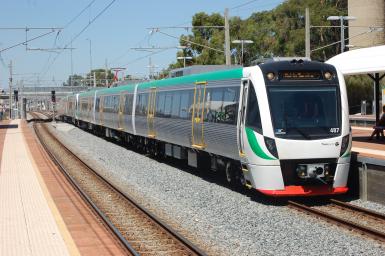The Train Ride
"Hurry up, Tee, or we're going to miss it."
My name is actually Terrence, but you'd never know it from listening to everyone around me. The only person who ever called me by my proper name was my grandmother, but since she's been gone, Tee is all I hear.
"Get out of the fridge. We don't have time, and you already finished the last of the macaroni."
Mom generally moves at 90 miles an hour, but she's really in overdrive this evening. Since this whole thing began, she's been watching the news every night, clipping newspaper articles, and talking about nothing but politics to anyone who'll sit still and listen for more than a minute. Except for the times when she's chasing after me, I've never seen her so energized. The way she's been talking about it all week long, you'd think that she was the one delivering the acceptance speech tonight.
"If you're not ready in 30 seconds, I'm leaving you here," she yells from the front door. But I know she wouldn't leave without me. "You'll be grounded for a month of Sundays if we're still on the train when he begins."
The truth is that she managed to get me excited about the election, too. I'm not quite as excited as she is. I don't think anybody is. But seeing someone who looks like me, a skinny kid with big ears, become President of the United States, well, it makes me think anything is possible. That thought is enough to get me to slam shut the refrigerator door, grab my sweatshirt, and race down the hallway for the door.
As we speed walk towards the station, I have to almost run to keep up with Mom. I never saw her hurry like this.
Finally, we're at the station, and I feel like we're really on our way now. When the train pulls in, I can't believe my eyes. Each train car is packed full. There's standing room only, just like rush hour. It seems like everyone is talking, and even the silent few are smiling. I've never seen any of these people in my life, yet people are talking with me.
The intercom crackles: "47th Street, 47th Street. No smoking or radio players. Next stop 35th."
I look over to my mom, who's lost in thought. I know she can't tell whether or not I understand everything that's going on -- that's been going on for these last 12 months. I don't know if I do, but I feel a tingling inside that tells me I might.
"Harrison... Harrison. No smoking or radio players. Next stop, Jackson. That’s Grant Park." Everyone cheers—it is so exciting.
I feel my heartbeat quicken as I realize that, for once in my life, I won't be reading about the big things that make it into history books. I'll be watching it unfold in front of my eyes.
I look over at my mom and catch her looking at me, nodding. We've arrived.
